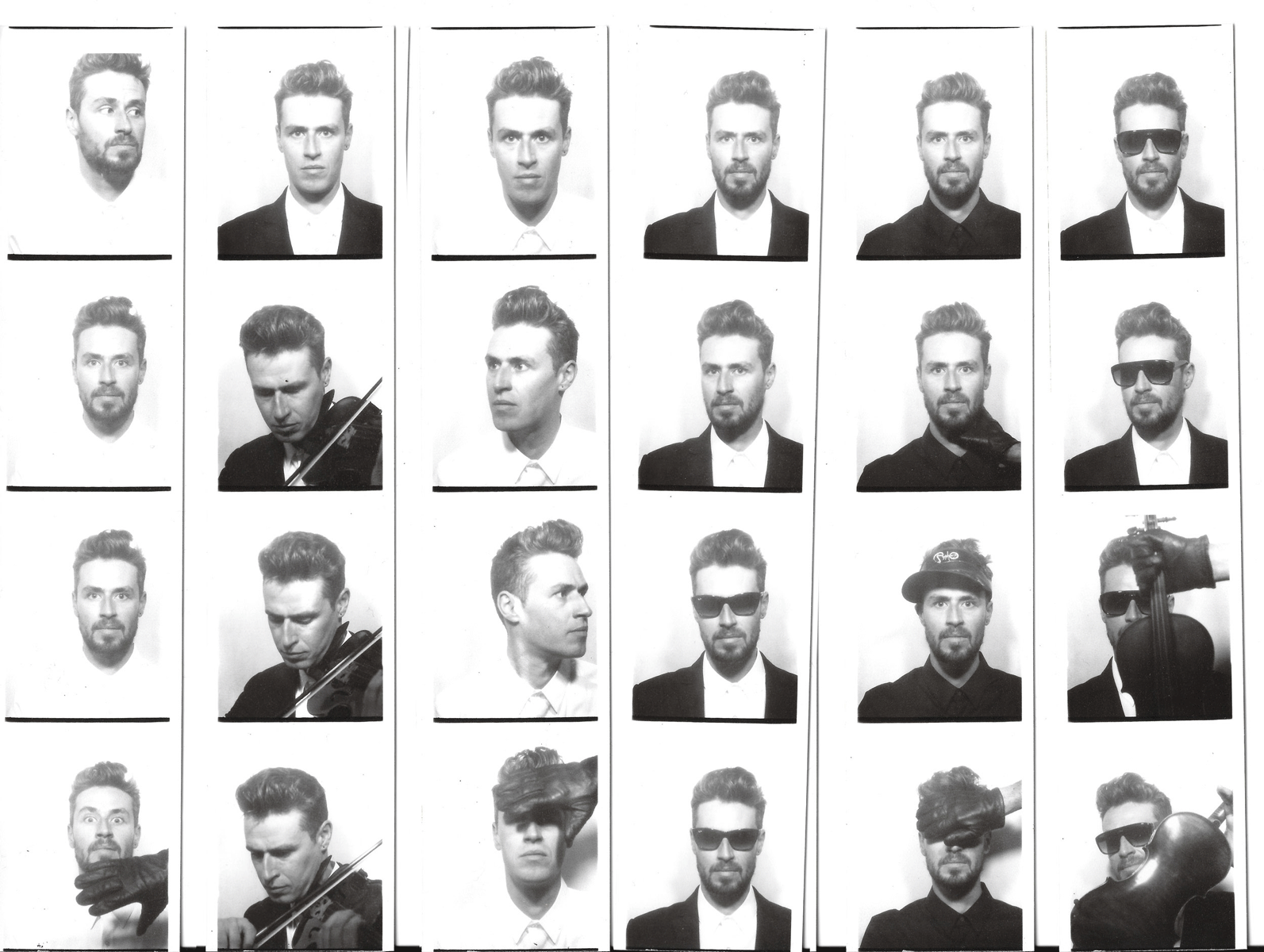HANDLER WITH CARE: AN ENTREPRENEURIAL COMPOSER RETURNS TO FULL-TIME COMPOSING
The Clyde Fitch Report | July 25, 2019
“Stepping away” is not how David Handler, co-founder of Greenwich Village’s acclaimed music venue Le Poisson Rouge, characterizes his return to full-time composing. He readily admits to remaining deeply involved in what everyone calls LPR. He’s also quick to stress that he was a musician and composer of acoustic and electronic music long before the idea of creating a “disruptor venue” for music first came to mind. And he is reluctantly aware that, as a producer and venue owner, he has already claimed the mantle of innovator.
[Le] Poisson Rouge is a multimedia art cabaret founded by musicians on the site of the historic Village Gate. Dedicated to the fusion of popular and art cultures in music, film, theater, dance and fine art, the venue’s mission is to revive the symbiotic relationship between art and revelry; to establish a creative asylum for both artists and audiences.
The words above aren’t about branding or wordsmithing, but rather tone and intent: only in reference to LPR can such names as Thom Yorke, Paul Simon, Yo-Yo Ma, Lady Gaga, Iggy Pop, Lorde, Beck and Philip Glass all sit effortlessly in a single sentence. Pressed further, Handler grows even more succinct, seeing LPR as “recognizing the art world’s need for popularity and nightlife’s need for substance.”
But now it’s time for him to think about his need for composing.
It was nearly a decade ago that Handler was commissioned, by Lincoln Center’s White Light Festival, to create an arrangement for orchestra and voice of Riceboy Sleeps, an album-length work of ambient electronic music that was written and performed on disc by Jón Pór “Jónsi” Birgisson (the Icelandic vocalist behind the band Sigur Rós), and by Jónsi’s partner, Alex Somers. To mark Riceboy’s 10th anniversary, Jónsi and Somers kicked off a tour of Australia and Europe last month; a 10-date North American leg begins Oct. 11 in Seattle, followed by performances in San Francisco, LA, Denver, Chicago, Montreal, Toronto, Washington, DC, and Boston, and then concluding Oct. 31 at the Kings Theatre in Brooklyn. Handler is composing new material for Riceboy Sleeps, but, equally important, he’s eager for a dialogue around how and why a venue owner decides to reconnect with his roots.
“My faith in music — listening to it, creating it — inspired the founding of LPR,” says Handler, who finally explains his return to full-time composing as “being led back out the other side, saving me in the process.” He was, after all, fresh from conservatory when the venue idea he’d had as a preteen first took hold. And it’s not as if running LPR doesn’t satisfy him; if anything, he was hungering for “arenas or forums for agnostic, omnivorous music palates” back in 2008, and didn’t see very many.
Handler’s work as artistic director of Ensemble LPR, an “orchestral collective” he founded that ranges in size from string quartet to symphony orchestra, is an example of such omnivorousness. It’s an astonishingly versatile group, working with the likes of Lara St. John, Simone Dinnerstein, Jennifer Koh, Daniel Hope, André de Ridder, Christopher Rountree and Max Richter — and prominent artists from non-classical backgrounds, such as Jonny Greenwood of Radiohead, David Longstreth of Dirty Projectors, and Oscar-nominated Mica Levi.
For a long time, Handler simply reveled in LPR as a “curatorship-ambassadorship thing” — a way to attract musicians, music lovers and people who may not know “Mahler from Mozart, or an opus number from a key signature.” Juggling bookings, marketing, press and overseeing a successful operation on the notoriously touristy Bleecker Street is a lot, though — and Handler feels keenly aware of time flying by. “Being well-surrounded is important,” he notes, giving a major shout-out to Justin Kantor, his former conservatory classmate and the co-founder of LPR. Kantor was always “very interested in the nuts and bolts, from the tech side to the operations,” Handler explains. “Picking the right teammates — sometimes picking the wrong teammates — and being able to figure out some key ingredient you cannot compromise on, it all takes time. I didn’t have the time I once did for my own music. And it became clear to me that if I did not start to nourish my creativity, if I didn’t give at least a thousandth of the attention that I was giving to everyone else’s career, I would be denying my purpose, and my nature. That I would never be whole.”
And at the center of it all, is the listener. “I have a fundamental, intrinsic belief in the listener to discern what’s good and what isn’t,” Handler adds. “We’re taught that art is subjective but people know what’s good when they hear it; what we’re still missing in music is having trust and confidence in the yet-unconverted listener. I want to reach not the faithful, but those who could be the faithful. Classical music doesn’t have to be dumbed down or made cool for the kids.”
He concludes: “I really believe in music as nothing short of spiritual, in a kind of profundity that is desperately needed right now. Music has power to accompany us throughout our lives — the ‘soundtrack to your life.’ I think we can listen differently — with single-minded attention. Music can be a meditation. It can deepen your life.”
A version of this article is available online here.


